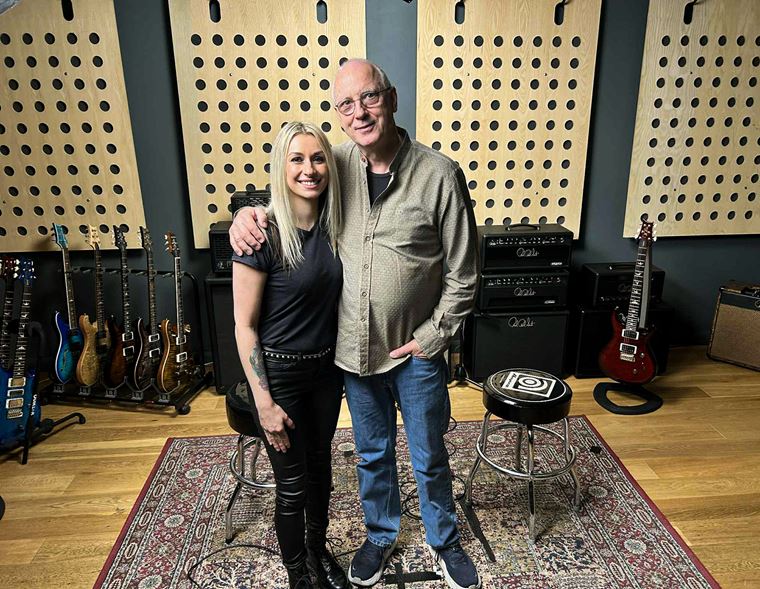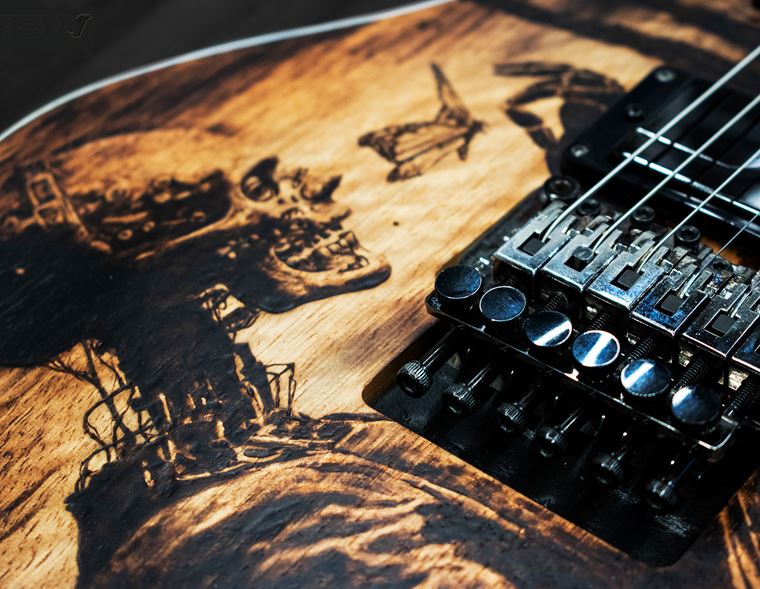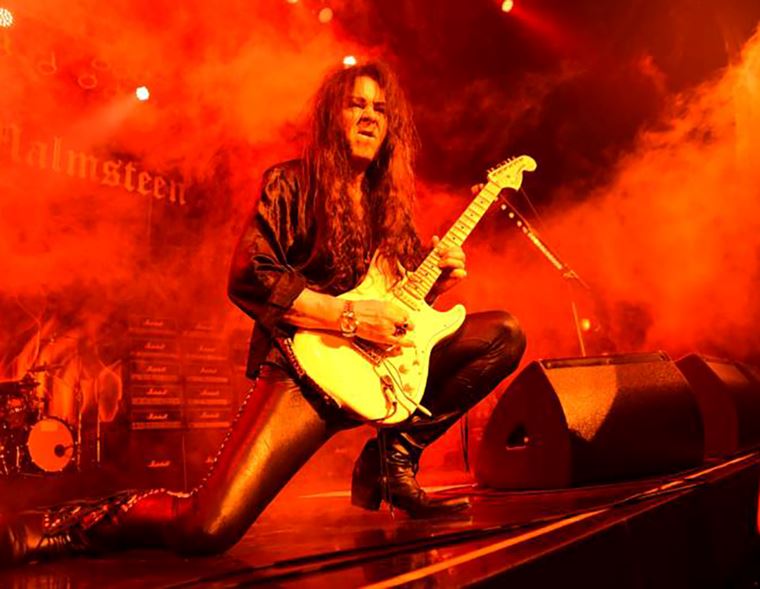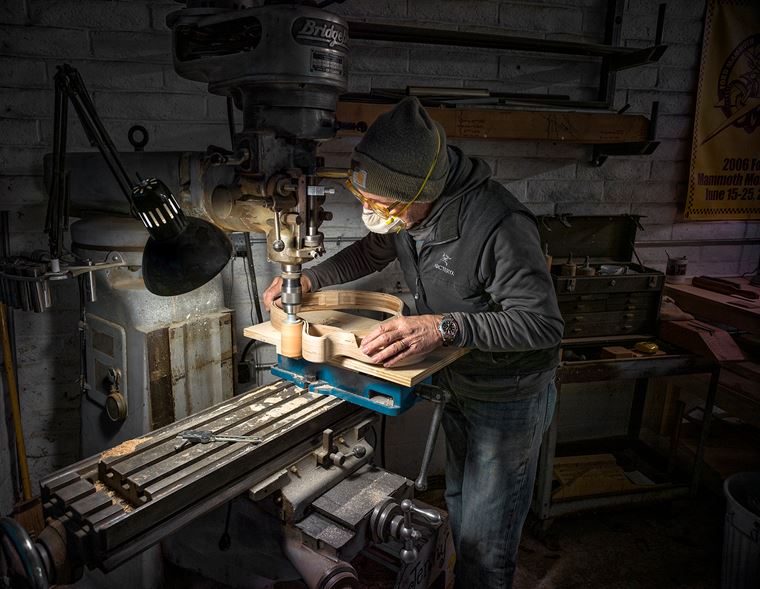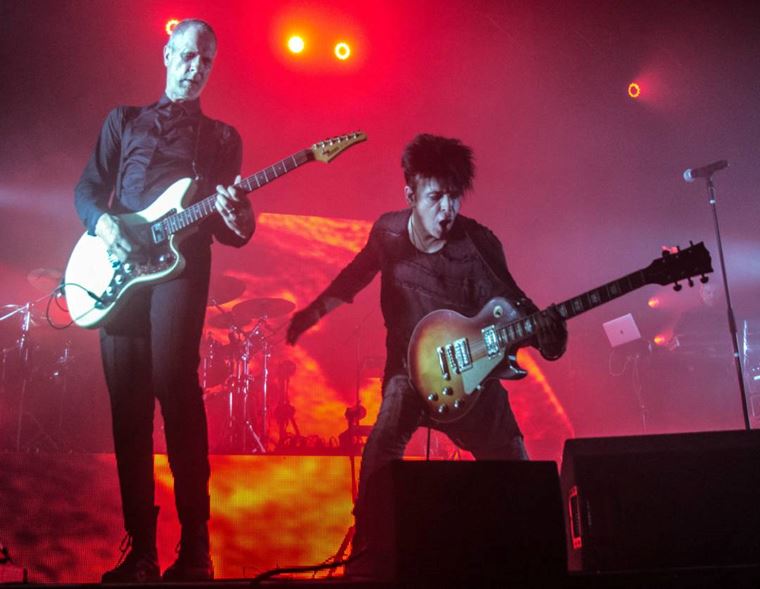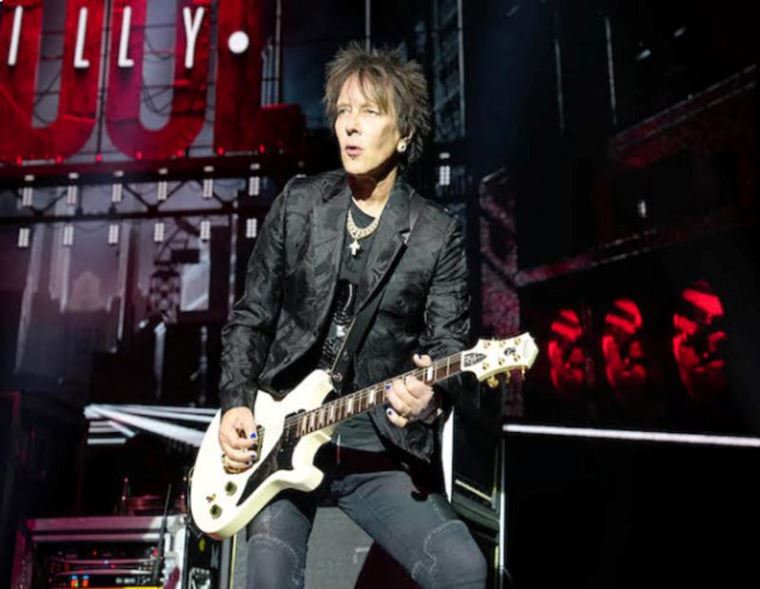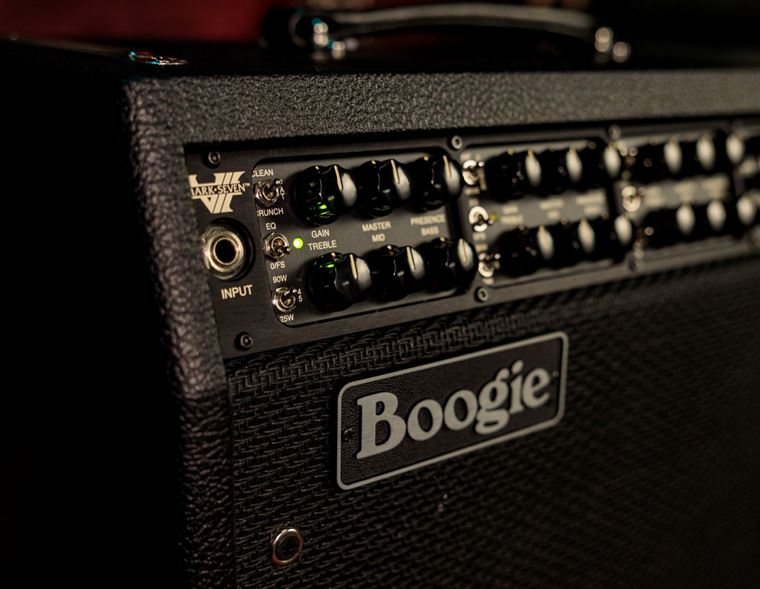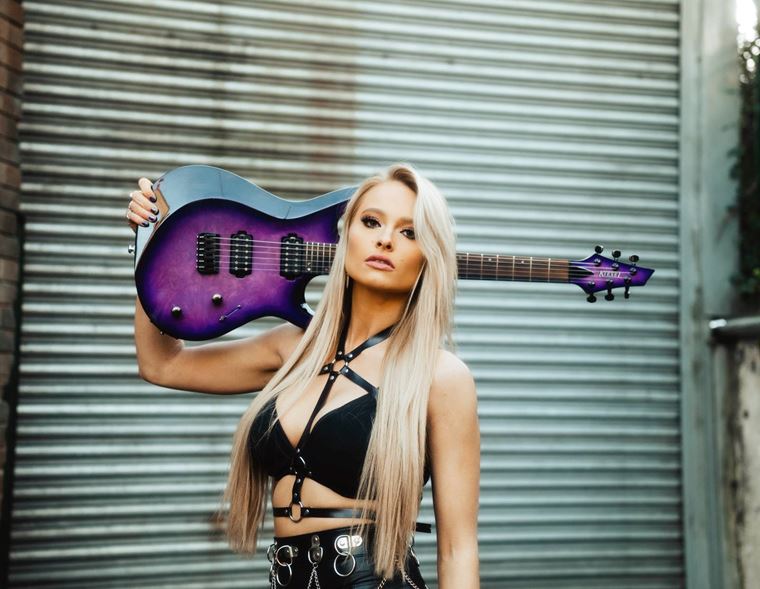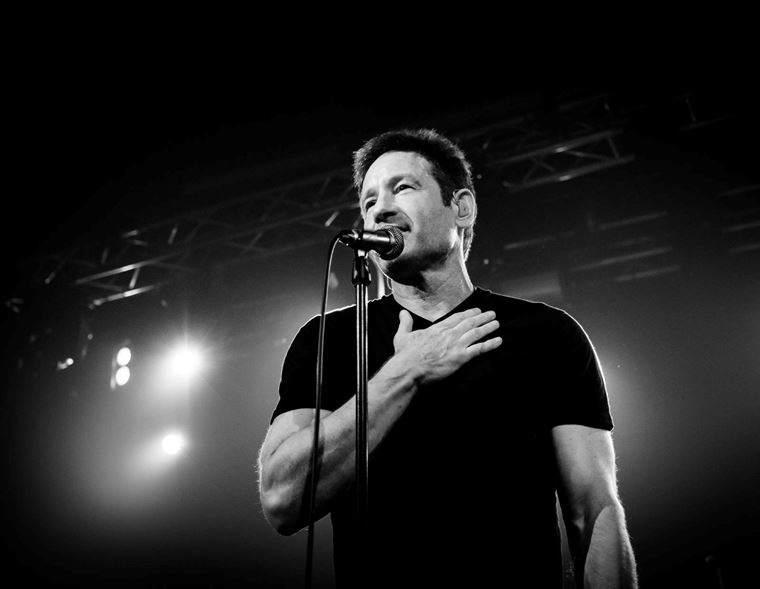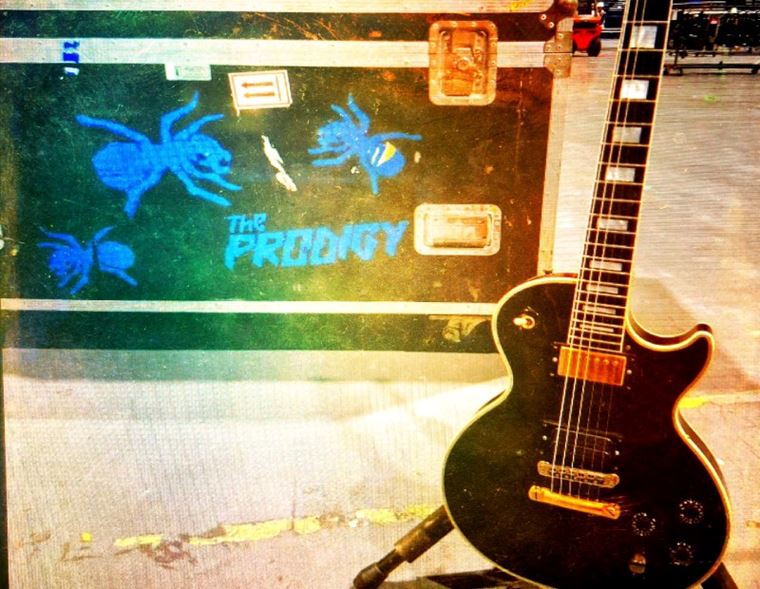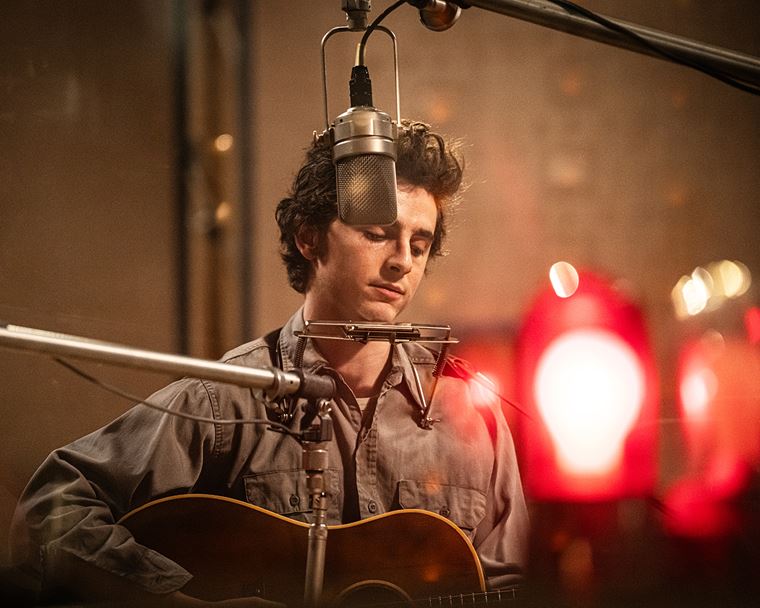The guitarguitar Interview: Paul Rose
Do you like guitar playing?
Then you’re going to love Paul Rose.
The Newcastle-born guitarist, songwriter and producer is one of those great hidden talents who have enjoyed a degree of success within the industry without necessarily becoming a household name.
Paul has recorded albums in LA with industry greats, performed weekly residencies in Greenwich Village, NYC and complied a legacy of high-quality Blues-tinged Rock music. His commend of the instrument is enviable, with a touch to die for and a sense of timing and melody those puts him far above his peers.
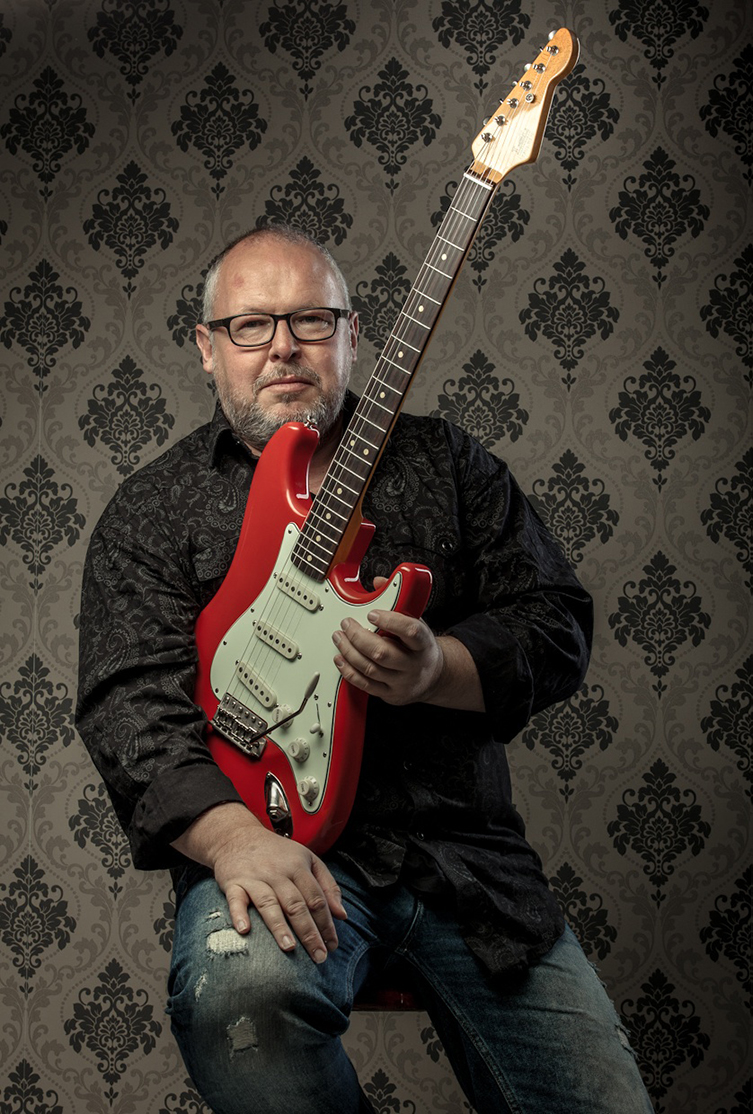
Paul came onto our radar via LsL guitars. LsL, as you may know, are one of our favourite American boutique guitar brands. Paul has his own signature Paul Rose Saticoy model, a beautiful vintage S-type guitar. This association intrigued us to look a little further, and our investigations were rewarded with some of the best guitar playing we’ve heard in a long time! Paul’s style, for us at least, is timeless and beautiful: full of taste, control and passion. He definitely seems to subscribe to the idea that less is more, but isn’t afraid of flashing a little technique now and then! Our kind of player!
Paul is very active online, with a variety of videos and performances available to view. We seriously recommend checking his music out if you haven’t already done so, but before then, stay a while and have a read of this illuminating email Q&A we managed to have with him. He’s a man with lots of experience and has a lot of interesting things to say regarding guitar playing, composition and more!
Paul Rose Interview
guitarguitar: Let’s go back to the beginning: how old were you when you began playing and who were your heroes?
Paul Rose: I got my first electric guitar when I was 11 years old, an Antoria Telecaster Custom for Christmas '77 that I still have, although it needs a bit of attention. But like most kids my age in the 1970s I was into the pop/rock of the day, like Sweet and Slade etc. Our father was into classical stuff and our mother loved the radio hits of ABBA and the BeeGees etc. So there was a very dense cross section of music being played in our house while growing up.
Then I heard Frampton Comes Alive which moved me out of the kid’s stuff, I suppose. But when I heard the live version of Black Night by Deep Purple it was literally like being electrocuted on every sensory level. Later I idolised Hendrix, Johnny Winter, Frank Zappa, Adrian Belew, Jeff Beck, Robin Trower, Billy Gibbons and Allan Holdsworth. But no guitar playing excited me the way Richie Blackmore did that night on the radio in 77/78. Not even Hendrix. From then on I was hooked and never looked back.
But since then I've listened to as much of the good stuff I could possibly find. Like Chet Atkins, Wes Montgomery, Danny Gatton, Roy Buchanan, Peter Green, Bill Frisell, Pat Metheny, John Schofield and Michael Hedges. There are still so many more I could mention.
GG: Did you receive any formal training in music or music theory?
PR: No not really, although when I was sixteen I briefly went to music college and picked up guidance from some of the older students. Which was very helpful, but for the most part I am self-taught. Although I do still occasionally check out the Internet jazz instructors sometimes for clarification on certain things I'm working on. I feel that there is still so much more to learn.
GG: We’ve come to you through LsL guitars. How did you come into contact with LsL?
PR: A mutual friend of Seymour Duncan introduced me to Lance Lerman when I was in Los Angeles about 12 years ago. Since then I've always got along well with Lance and been more than happy with the guitars he's made.
GG: What is it about LsL that you love more than other brands?
PR: I think that there is a crispness to them. Of course, the guitars are pretty much entirely handmade, and I love the weight of the woods Lance selects. The finishing is always a fantastic thin skin nitro. But ultimately the playability and the sound are extremely satisfying. They're just great guitars, in a nutshell. Never really crossed my mind to play anything else. And of course, I'm very proud to have my own LsL Signature model too.
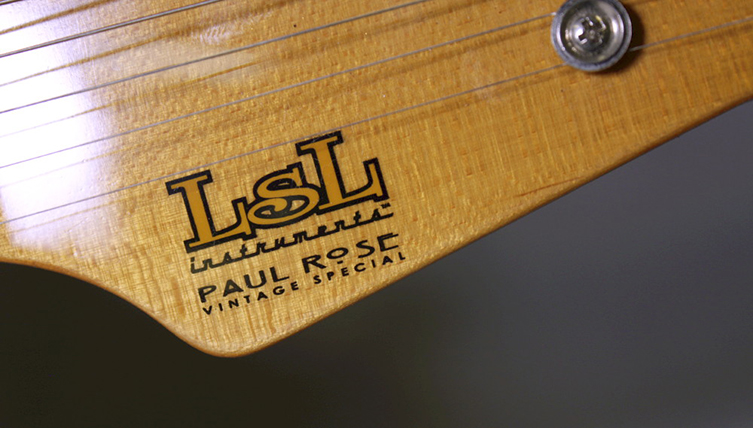
GG: You’re a very versatile playing, judging by your YouTube videos. How would you describe your own style?
PR: Fundamentally I'm a rock guitarist. But as said earlier, I've enjoyed listened to many players in many different styles and have tried to incorporate the different flavours into what I'm doing. I'm known as a blues player to many, not surprisingly as I have played a lot of blues gigs around the UK and Germany over the years. But in actual fact of the 15 or so albums I have released to date, there are very few straight 12 bar blues numbers included on those CDs.
"Scales and modes are ultimately data, in the same way that the Oxford English dictionary is data. If you read that book, it will not tell you a story but it will give you all of the words you need to tell your own story"
GG: Paul, your guitar sound is excellent! What do you tend to use in terms of amps and pedals? Any particular favourites?
PR: I've used a multitude of amps over the years. But currently I'm using the Amp1 from Thomas Blug in Germany. It's brilliant, giving me pretty much every sound I could possibly need. Plus it's a 100-watt amp that is small and light enough to fit into my gig bag with my guitar. I favour 2x12 cabs with (Celestion) Vintage 30s.
In the studio I have used Amplitube software pretty much exclusively for all of my recording and YouTube material. It's an incredibly flexible piece of gear, although I probably don't use more than 5% of what it's capable of. I like a driven amp sound, and for the studio I like a splash of reverb and sometimes delay, but even then, I'm trying to cut back on that too. And maybe a wah pedal from time to time. But I've never used a pedal live in almost 30 years. Or at least not that I can remember.
GG: What is your preference of string gauge and plectrum?
PR: 9/42 on Strats and Teles, mostly down to just years of habit. And 10/46 on the Les Pauls because of the neck length. I know some people like heavier strings and some even lighter than 9s. But for me it's just a well-established habit. D'Addario NYXL are very good. As for plectrums I love the yellow Dunlop ones. 0.73mm I think.
GG: Your playing is very tasteful and melodic: what tips could you give other players about bringing more melody to their leads?
PR: Now that is the million-dollar question. For me it's about understanding theory enough to recognise that each individual note has its own value in relation to the chord. I try very hard to get this across when I'm teaching or when doing masterclass/clinics. Without going into the theory of it all here, while trying to put it simply: a chord is an abbreviation of a scale, so when a chord changes, the scale changes. I know that sounds patently obvious, but for me that's where the pot of gold is buried. And ringing the most out the moment the change happens is where it’s at. You can find the greatest examples of this in the jazz world, or the great writers like Burt Bacharach or George Gershwin. And of course, in the classical giants like Bach, Beethoven or Handel and so on.
Learning the scales and theory is one thing but applying them in a creative and musical way is another thing altogether. Scales and modes are ultimately data, in the same way that the Oxford English dictionary is data. If you read that book it will not tell you a story, but it will give you all of the words you need to tell your own story. Playing set pieces very fast seldom works in my opinion. That's just reciting the data very quickly. I could go on. But ultimately, it’s about giving your guitar playing a home, and that is through the personal expression of composition I feel.
If there's one thing that all the "true greats" have in common, like Angus Young, Billy Gibbons, Mark Knopfler, Slash, Eddie Van Halen etc, is they're in a band with great songs. Or they are capable of writing strong melodic material as solo artists. Yes, they're all great players but the guitar is always a part of a much bigger picture. This was something vital that I missed earlier on, even though it was advice being offered to me by those with far greater experience than I.
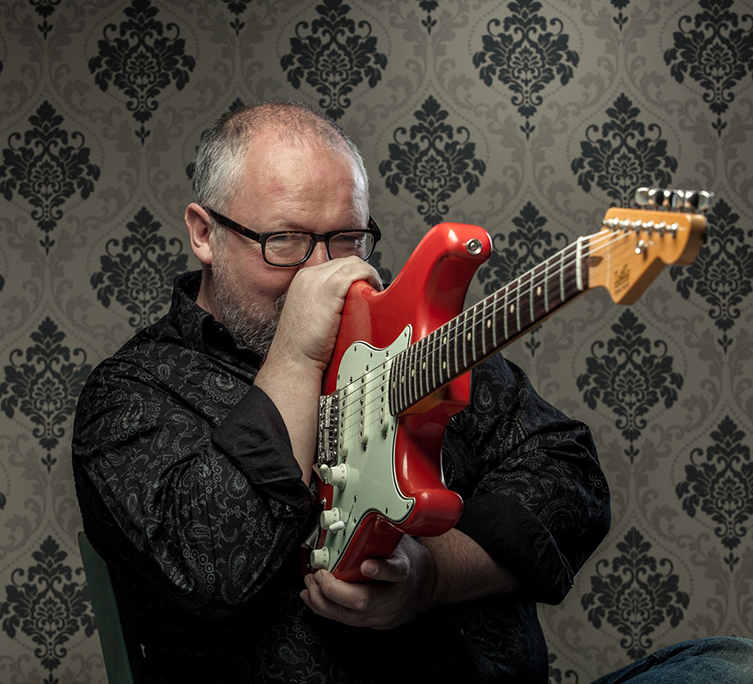
GG: On top of having what I’d maybe say is a more vintage guitar tone, you seem to be quite interested in technology, too, is that right? What part does technology play in your music making?
PR: I use a well-made guitar and an amp with enough gain that I'm not reliant on any pedals in 99% of situations, and that works for me. Where I have got into technology has been in the audio and video production side of things. Besides producing the 15 or so albums of my own I have also engineered and produced a few albums for other artists too. And obviously the Internet has become a priceless tool for artists and creators in all genres to get their work out across the world. And this has become my primary motivation over the past 20 years or so.
I become obsessed with things that I have to be able to understand in order to employ the tech in what I'm doing. Take my live streams for instance: I was in my studio from 5am to 10pm for days and days banging my head off the wall until I grasped the technical concept of what I was wanting to achieve. Mic’ing up and recording live drum kits is another thing, or EQ frequency relationships. It's all an endless source of fascination for me. And one that is evidently going to take at least a lifetime.
"You'll learn more playing live regularly for 1 year then you will practising scales in the bedroom for 10 years"
GG: Do you often still sit down and practise, as opposed to just playing?
PR: Yes and no. When I first moved to London as a (naive and gullible) starry-eyed kid, I didn't really know anyone down there, so I had nothing else to do but practise. I would average around 5 hours per day usually, only because I had precious little else to do. It was at that time that I got most of my technique together, but paradoxically, I was by no means at my best during this time. It wasn't until I started putting my own bands together and gigging regularly that things began to click.
I've said this on many occasions while teaching, that you'll learn more playing live regularly in 1 year than you will practising scales in the bedroom for 10 years. But unfortunately, over the last years leading up to 2020, live music has dropped off in a desperate fashion, which is truly a great shame, as it means the best learning ground has been lost. But for me nowadays I still play pretty much every day, but it's usually in the composition, production or recording/videoing of various projects I'm working on.
GG: Your website says ‘virtuoso guitarist’: what does it really take to be a virtuoso?
PR: For the record, I didn't put that up there, a web designer used it, and so I just kind of went along with it! For me, the true virtuoso players are in the classical world, like (pianist) Alfred Brendel or (violinist) Maxim Vengerov. And I most certainly do not put myself into that category at all.
GG: Has the current Covid-19 lockdown meant you’ve had to change lots of plans for this year? What kind of things have you been doing whilst in lockdown?
PR: When covid-19 hit, we were 10 days into a 60 date European tour with the Band of Friends. Fortunately, almost none of the gigs have been cancelled, but postponed/rearranged. So, we are just waiting for things to settle back down again so we can all get back out on the road. Meanwhile I continue writing, producing and live streaming from home, as well as offering my online lessons.
GG: If you could collaborate with any artist, dead or alive, who would it be and why?
PR: Mark Knopfler, I think. I love his simplicity and coherent style of playing and producing. And that's what it's all about for me. Clarity and coherence in the finished product.
We’d like to thank Paul for his time and generous answers here! We eagerly await his next move.


